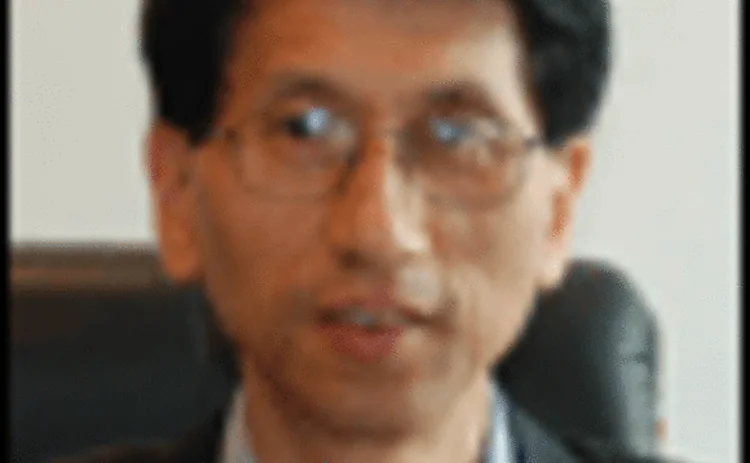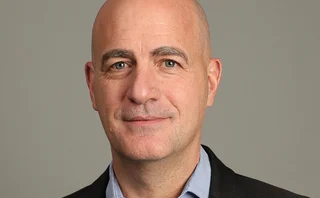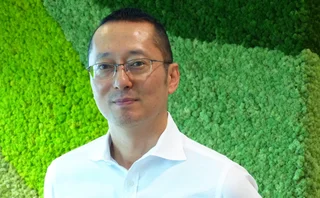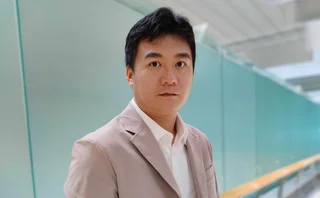
Wei Guoxiong, ICBC

Wei Guoxiong, who was named the first chief risk officer (CRO) of the Beijing-headquartered Industrial and Commercial Bank of China (ICBC), is a progressive force driving the implementation and development of modern risk management techniques among the domestic banks in China. Wei, who heads risk management at Asia's largest bank by revenues, pledges a steadfast dedication to bringing the bank's systems and risk management culture up to international standards. Together with other directors of the bank, Wei aims to ensure that ICBC in future will rank among the world's top five banks, not only due to size, but because it carries out best industry practice.
"He is a very good manager. He creates an atmosphere of open and robust discussion, and this is extremely important in a risk manager, because it permits staff at all levels to express their concerns and anxieties," says Drake Pike, senior consultant for risk management at Goldman Sachs, who has worked with Wei at ICBC in Beijing since January 2007 as part of a secondment. "It is only through that process that the chief risk officer gets a feel for the areas of concern his own staff has."
Wei joined ICBC in 1987, after graduating from Tianjin University of Finance and Economics with a master's degree in economics. In the early days at ICBC, Wei was assigned to a wide range of posts at branch level. "I have done every aspect of banking at branch level," says Wei.
Risk experience
Over time, he was promoted to various posts including acting president of ICBC's Wenzhou Branch in Zhejiang; vice-president of ICBC's Zhejiang Branch and finally to head office as general manager of the industrial and commercial credit department. In 2001, he was again promoted to general manager of ICBC's credit management department, a post equivalent to chief credit officer.
Wei manages a team of around 250 staff, and a portion of the bank's 40 billion renminbi ($5.7 billion) per year IT budget. He oversees the monitoring of an ever-expanding range of businesses, "probably more than any other bank in world", says Wei.
The CRO post was created after the bank was publicly listed. The main responsibilities of the CRO are firstly to carry out the decisions of the board and the requests of the chief executive with regards to risk management, says Wei. The CRO is also responsible for researching the entire bank's risk management policy and strategy, and bringing suggestions and opinions to the board.
The second part is to report to the board and the board of the risk management committee, including chief executive Yang Kaisheng, who acts as the chair.
"The third aspect of my job is to organise and carry out all tasks, as regards credit risk, market risk and operating risk - that is, all risks in the risk framework," says Wei. Finally, the CRO must promote the risk management capabilities of the bank within the bank and promote a culture of financial risk management, he adds.
Prior to 2008, ICBC and other banks in China concentrated their efforts on improving core credit risk management systems. In the past 12 months, Wei's team has completed a dozen projects, including the internal ratings on retail lending; set up the core system for market risk management; and started a project focused on measuring operational risk.
Lines of defence
Another key achievement was the establishment of the bank's three lines of defence - a clear delineation of the responsibilities of the front, middle and back offices of each business unit, says Wei. It's something that appears to be working. Profitability at ICBC is rising sharply, just as bad debts fall (see page 52). The bank's return on assets rose to 1.44% at mid-2008, up from 1.04% at mid-2007, while the return on equity jumped to 22.78% at mid-2008 from 16.82% a year earlier.
ICBC is "the most advanced at adopting international standards, the first to start on the adoption of Basel II", says Simon Topping, Beijing-based senior consultant and partner at KPMG, which has a consulting contract with ICBC. Before joining KPMG, Topping was a banking supervisor at the Hong Kong Monetary Authority, the territory's de facto central bank. "Mr Wei has been the champion within ICBC of the most radical developments and the adoption of international standards," he adds.
Wei also has a reputation for pushing a risk culture within ICBC and listening to feedback from subordinates and business line managers. "A bad risk manager is one whose mind is already made up and who refuses to listen to other opinions," says Goldman Sachs' Pike. "A good risk manager is someone like Mr Wei, whose mind is never completely made up, and who is always looking for new information. At the same time, he knows decisions have to be made and is comfortable making them."
Only users who have a paid subscription or are part of a corporate subscription are able to print or copy content.
To access these options, along with all other subscription benefits, please contact info@risk.net or view our subscription options here: http://subscriptions.risk.net/subscribe
You are currently unable to print this content. Please contact info@risk.net to find out more.
You are currently unable to copy this content. Please contact info@risk.net to find out more.
Copyright Infopro Digital Limited. All rights reserved.
You may share this content using our article tools. Printing this content is for the sole use of the Authorised User (named subscriber), as outlined in our terms and conditions - https://www.infopro-insight.com/terms-conditions/insight-subscriptions/
If you would like to purchase additional rights please email info@risk.net
Copyright Infopro Digital Limited. All rights reserved.
You may share this content using our article tools. Copying this content is for the sole use of the Authorised User (named subscriber), as outlined in our terms and conditions - https://www.infopro-insight.com/terms-conditions/insight-subscriptions/
If you would like to purchase additional rights please email info@risk.net
More on Awards
Joining the dots: banks leverage tech advancements for the future of regulatory reporting
The continued evolution of regulatory frameworks is creating mounting challenges for capital markets firms in achieving comprehensive and cost-effectiveawa compliance reporting. Regnology discusses how firms are starting to use a synthesis of emerging…
Markets Technology Awards 2024 winners' review
Vendors spy opportunity in demystifying and democratising – opening up markets and methods to new users
Derivatives house of the year: JP Morgan
Risk Awards 2024: Response to regional banking crisis went far beyond First Republic
Risk Awards 2024: The winners
JP Morgan wins derivatives house, lifetime award for El Karoui, Barclays wins rates
Best product for capital markets: Murex
Asia Risk Awards 2023
Technology vendor of the year: Murex
Asia Risk Awards 2023
Best structured products support system: Murex
Asia Risk Awards 2023
Energy Risk Asia Awards 2023: the winners
Winning firms demonstrate resiliency and robust risk management amid testing times
Most read
- Basel Committee reviewing design of liquidity ratios
- SG trader dismissals shine spotlight on intraday limit controls
- Too soon to say good riddance to banks’ public enemy number one







